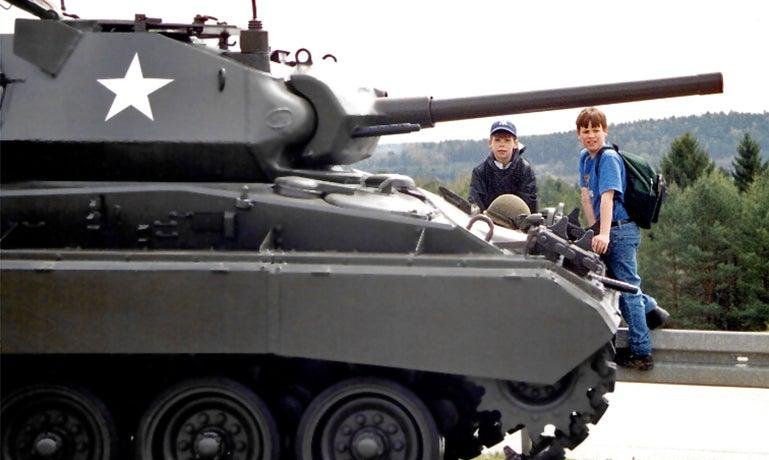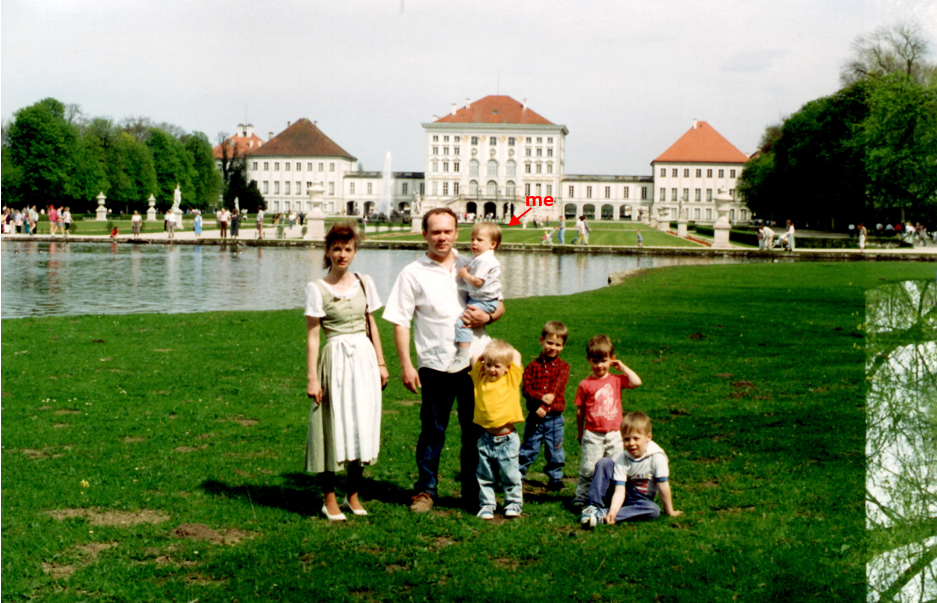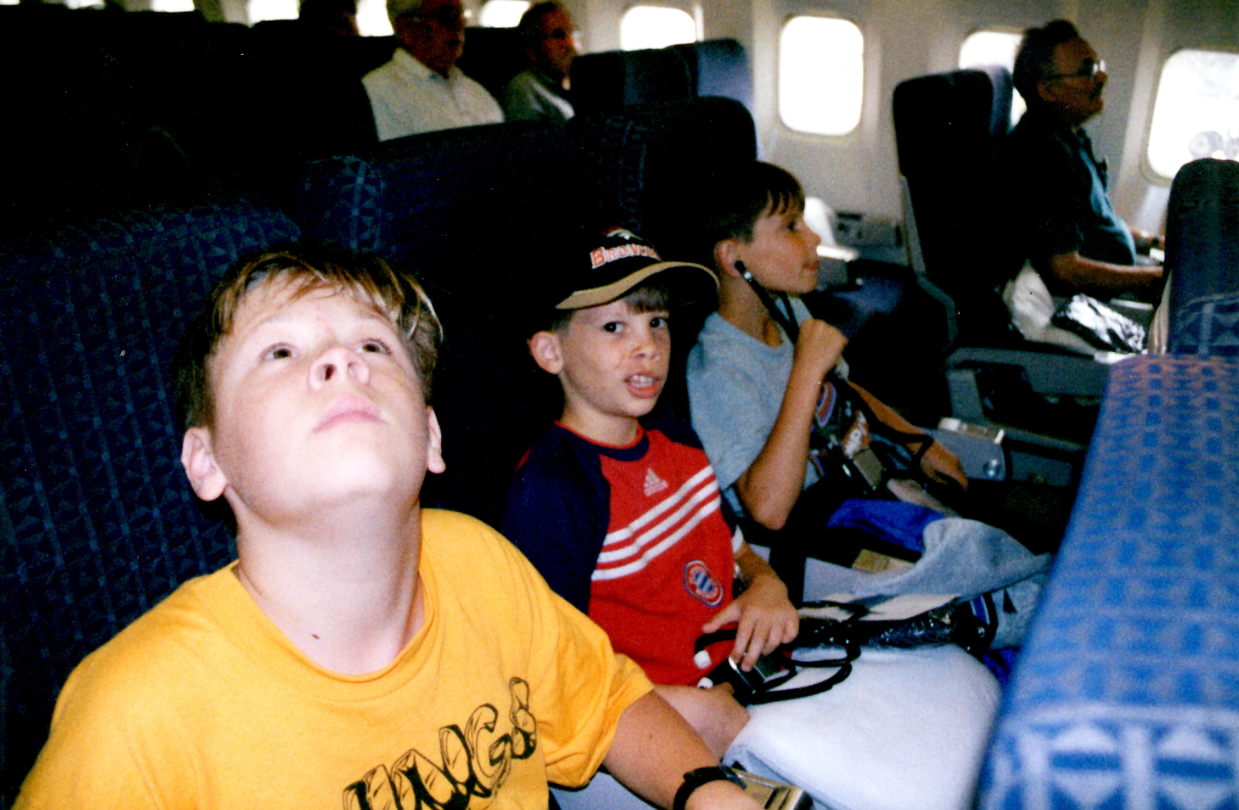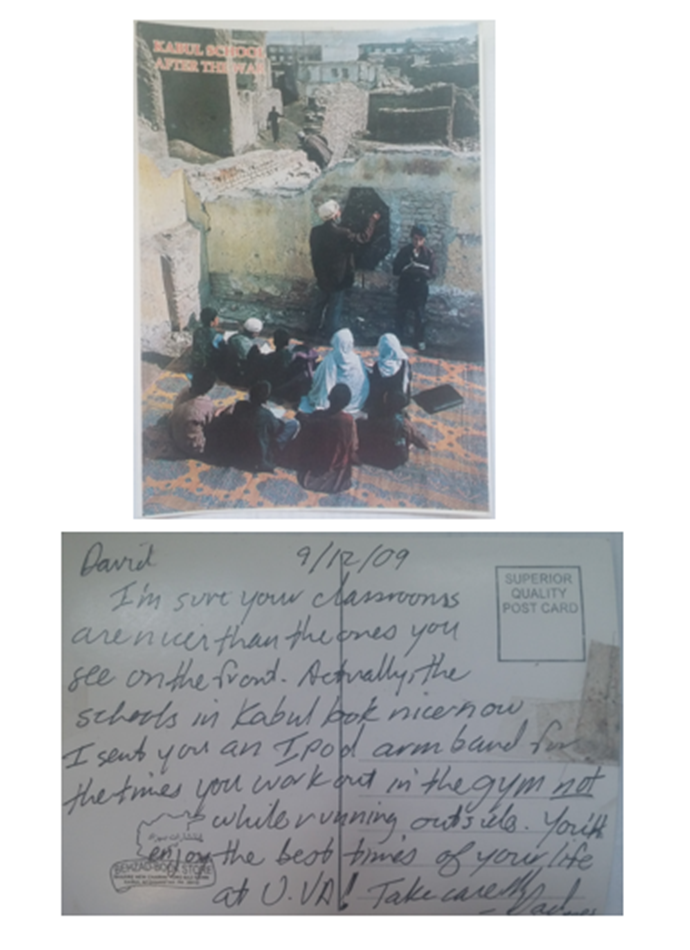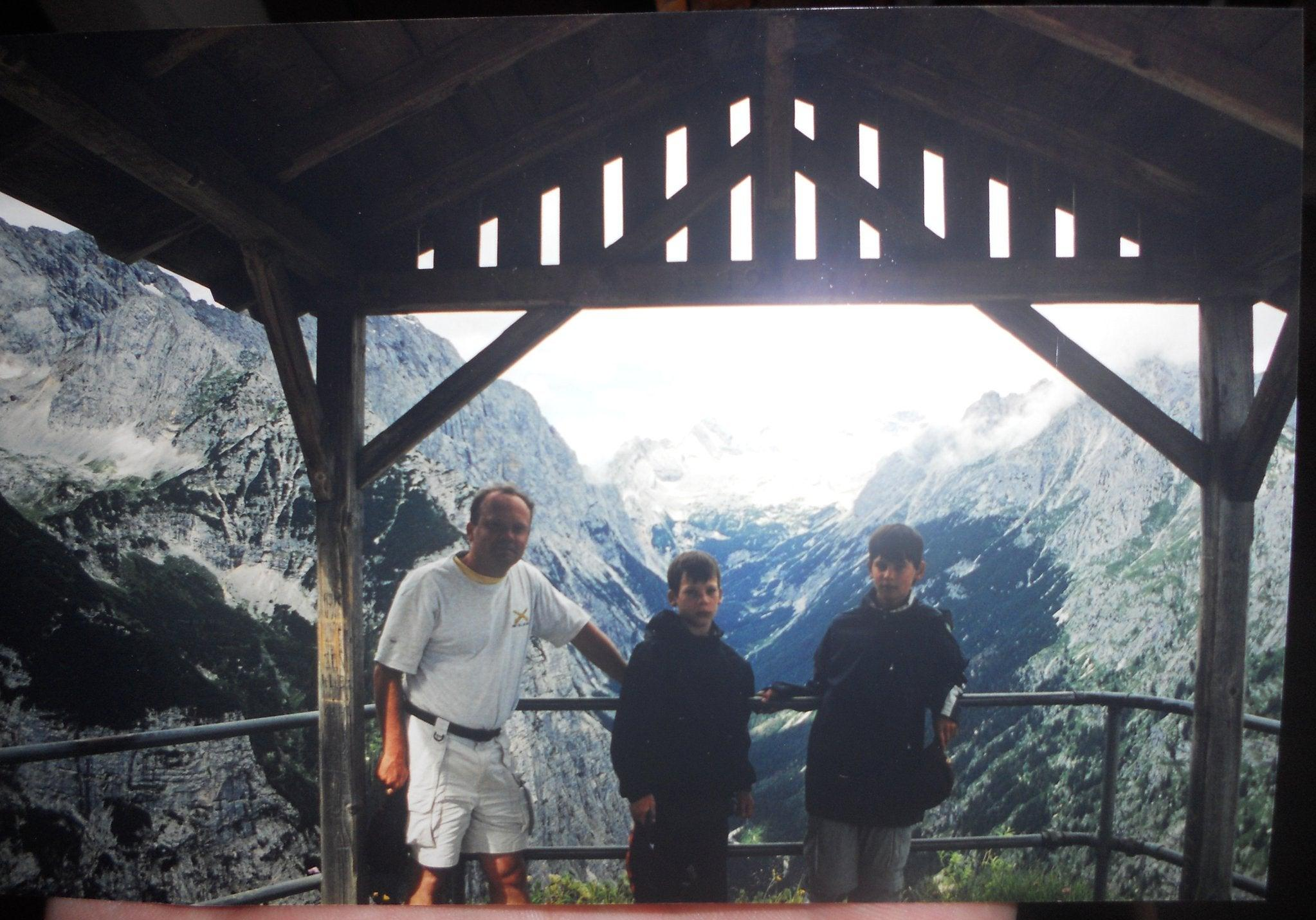What It's Like Growing Up As A Military Brat
Tens of millions of Americans belong to an often misunderstood subculture known as “Military Brats.”
Tens of millions of Americans belong to an often misunderstood subculture known as "Military Brats." A proud member of this group, I'm here to lift the veil on some topics seldom discussed. I'll provide some insight into the unique lives these children of America's soldiers lead and the interesting challenges they face as kids and later as adults.
You might think "Military Brat" is a coarse term to call our service members' children. I know I thought so at first. But in time, I began to see it as a term of endearment. One used to describe me and my closest friends, all of whom shared common experiences unique to kids who have been dragged around the world by their parents in uniform. It's a term that says so much about me. It defines my very being- so much so that you'll find "Military Brat," (well, "Army Brat" to be exact) in all of my personal descriptions- Twitter, Facebook, Instagram, car forums- the lot. And it's not just me. According to Militarybratlife.com, a site devoted to the Brat subculture, there are about 10 million Americans who identify themselves as Military Brats, so it's really important that people understand what the term really stands for.
So I figured I'd offer a little snapshot of my time as an Army Brat. I'll highlight the unique experiences I've had growing up around the U.S. and Germany, the challenges I've had to face, and those I continue to face to this day as a result of my Brat upbringing.
A Bit Of Background:
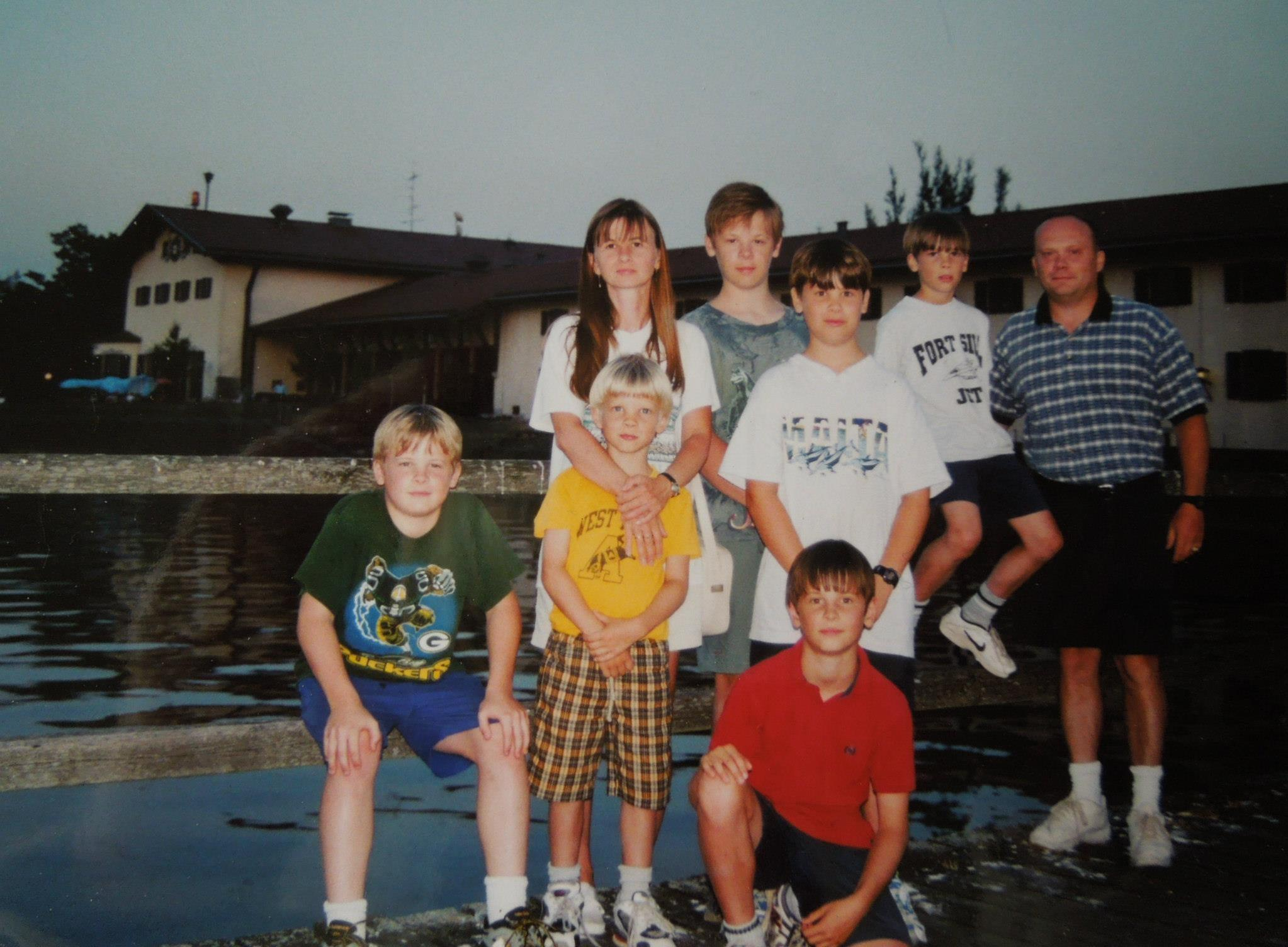
My dad was born in Germany in the sixties after his father, an American Army soldier, fell in love with a German girl near Goeppingen, Germany. I wasn't fortunate enough to get to know my grandpa well, but the stories I've heard paint a picture of an incredible man. He served in the Army for 25 years, spent time in Vietnam, and managed to support himself, my grandma, and their 13 children on a Master Sergeant's salary.
My dad was the oldest of this clan of 13. He wanted to follow in his father's footsteps, so after high school, dad enrolled in The United States Military Academy at West Point. One summer, while visiting his parents stationed in Germany, my dad met a girl in a bakery in Munich. They fell in love, got married, and the rest is history.
The story of a service member falling in love with a foreign girl during an overseas assignment is the kind of romance often only imagined in classic war films, but it really does happen, and it's a beautiful thing. Two people see past their cultural differences to form an everlasting bond.
After my dad graduated from West Point and married my mom, they started building a family. A family of boys, to be exact. And lots of them. After their sixth, they had enough for a basketball team and one sub, so they called it quits.
Our family of eight moved around from military installation to military installation (these are called "Posts" in the army and "Bases" in other military branches), shuffling six boys into new schools, constantly meeting tons of new people, losing friends, making new ones, enduring heartbreaking goodbyes, and ultimately developing worldviews that only other military brats can really understand.
It wasn't until I left for college that I realized how different my Army Brat upbringing was.
Home Is Where The Army Takes You
One thing you always hear about military brats is that they move around a lot, and that's true. On average, military families are assigned to a new installation every two to three years. And it's usually not just a relocation down the street. No, often times military families are assigned to fly to a new "home" all the way across the country, or even overseas to a new land with an entirely different culture. Indeed, a good chunk of military children are born outside of the U.S. Many of my friends were born in Germany, but others started out life in places like Seoul, South Korea and Tokyo, Japan.
I was born in Aschaffenburg, Germany, a small town on the very northwest edge of Bavaria. My family and I lived there for a year and a half after my birth, at which point we moved to beautiful sunny Monterey, California. We stayed in Monterey only 18 months before flying back to Germany to spend three years Augsburg. Augsburg was where I began my elementary education, starting in a German preschool, and then going to the Military Department of Defense school on post.
After Augsburg, my family moved to Lawton, Oklahoma for two years, where we developed our love for the outdoors and fishing (see picture below). Then we packed up and left for Hohenfels, Germany for another couple years. One fond memory I have of Hohenfels was "take your kids to work day," when my dad decided to take my five brothers and me into a muddy training area then called "The Box." We thrashed past bombed down churches and broken tanks as my dad gave us a history lesson on what happened on this cool training area once owned by the Germans. At the end of the day, my dad got a little overconfident with his HMMWV (I know exactly how that goes), and got it stuck in a mud hole. Who knew that experience would kindle my love for off-road vehicles- a love that remains to this day.
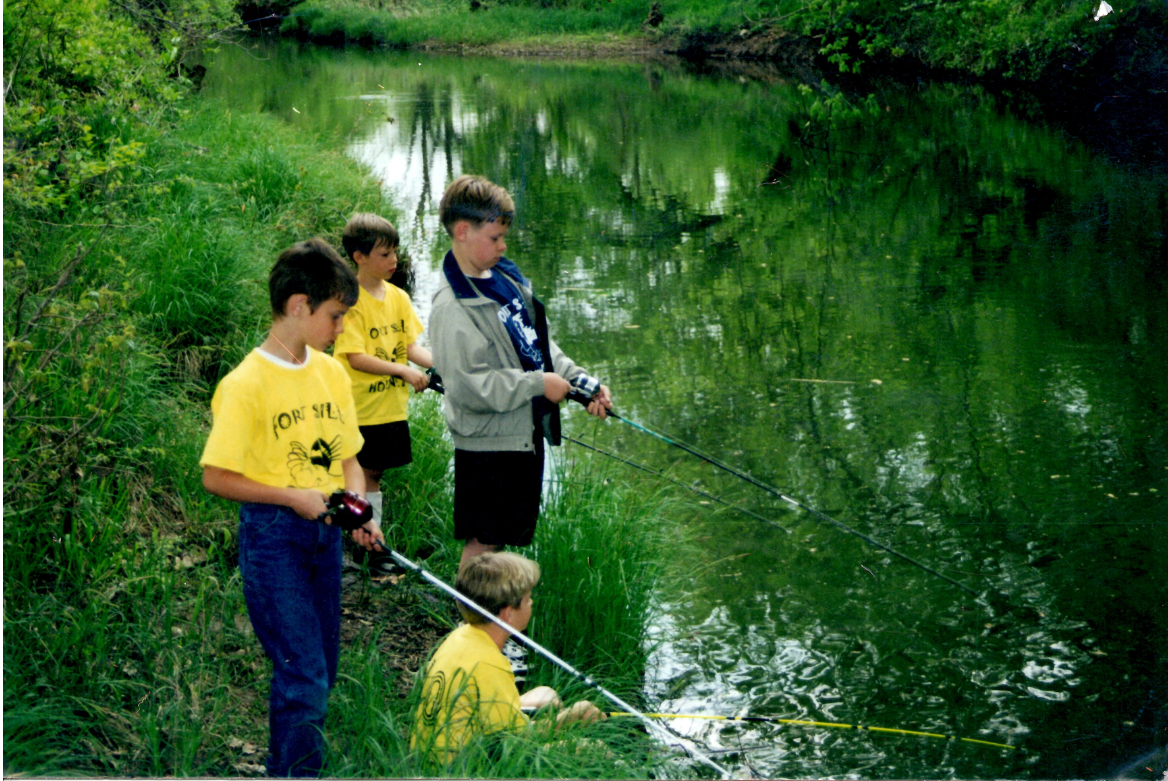
After Hohenfels, we moved to the winter wonderland of Garmisch, Germany (in the Bavarian alps) for a year (see picture below). In Garmisch, my school took every Wednesday off during the winter to teach students how to ski. That was a lot of fun, and I still snowboard every winter. After Garmisch, we moved from the alps to the flattest land on earth: Kansas, where all six of us finished high school. After six years in Kansas, I entered the civilian world as I went off to Virginia for four years to study engineering.
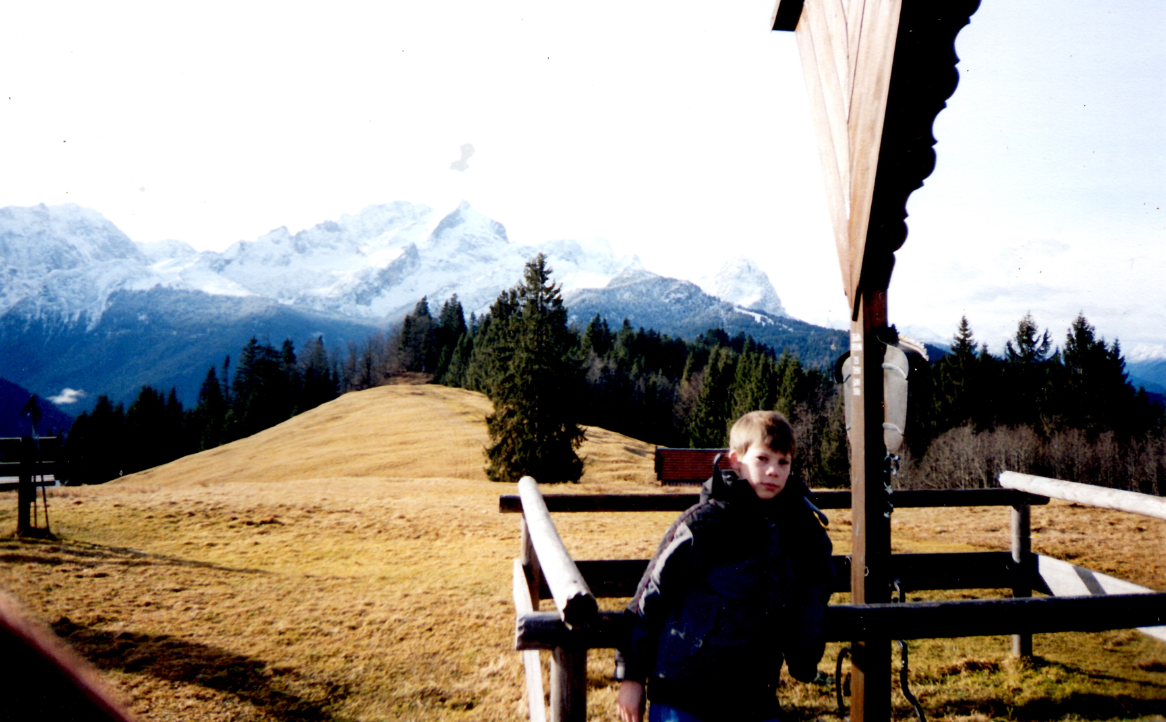
Despite all of these moves, I'd consider myself in the middle of the pack in terms of how many times I've had to relocate. Quite a few of my friends have moved over a dozen times in their lives and have had a much harder time dealing with transitions. All of this moving, as you can imagine, can be pretty stressful.
The Move
Moving a family of eight and all of their belongings every three years may sound exciting, but it can be an enormous pain in the butt. Though the military takes care of all the logistics- they pay for the movers, they pay for your flights to the new base, they hook you up with temporary housing- relocation is still stressful. Especially when you have a bunch of babies crying as you try to navigate your way to some old, decrepit temporary housing unit (read: trailer) in a blisteringly hot Oklahoma summer.
Psychological Effects Of Moving
Many Military Brats struggle with the concept of "home." The question that many civilians find so simple, "Where are you from?" isn't so simple for us Military Brats. And without a true "home," many Military Brats struggle in the civilian world. They often bounce around between jobs looking to find a place where they feel comfortable. Some are never successful and always feel like outsiders. As a result, some Military Brats enroll in the service, realizing that the military is the closest they'll ever have to a home.
The stress of moving can also wreak havoc on marriages. Some spouses long to settle down and enjoy a life free from turbulence, only to realize that such a life does not exist in the military. I was lucky enough to have parents who stuck it out, but many of my friends had to bear watching their parents' relationships disintegrate before their eyes.
Of course, there are positives to moving around frequently. Military Brats get exposure to a variety of diverse cultures, so they tend to be rather open-minded. Having been outsiders themselves plenty of times before, Military Brats tend to be accepting of people with different worldviews. And by and large, because they've had to adapt to new cultures and make new friends every couple of years, many military brats tend to have excellent social skills, easily finding common ground and striking up conversations with people from a variety of backgrounds.
Life On A Military Base
A military base or post is a community within a community. It's fenced off from the civilian world around it- a sanctuary for military families filled with amenities that make on-base living pretty pleasant. On base, you'll find gyms, pools, bowling alleys, sports fields,restaurants, military housing and barracks, golf courses, walking trails, schools, grocery stores, shooting ranges, and lots more.
Many Brats go to army Department of Defense schools (DoDs schools) on base. These schools are filled with Military Brats from all over the world. They'll tell you about the crazy food they ate in Japan, or that crazy song they sang about the Heidelberg Castle when they lived in Germany. Everyone had their own story, and it was usually fascinating. I really didn't think much of it at the time, but looking back, I went to school with some really incredible, well-rounded, multicultural people. Now that I'm in the civilian world, I realize that in "normal" American culture, people often go to school with kids from their same community, many of whom share similar backgrounds and experiences. Some of my civilian colleagues had the same friends from elementary school all through high school- this boggles my mind!
As a child, I thought life on post was awesome. There were so many other kids in the neighborhood and so many things to do. It was an absolute blast. The camaraderie in these communities is unlike any other communal bond I've ever experienced. I learned that growing up as a Military Brat meant not just being part of a military family, but being part of the military family. When husbands went off to war, wives took care of each other's families. People in these communities looked out for each other, and friendships, though brief, were as strong as they come.
Dealing With Deployment And Losses
One of the hardest parts about military life is dealing with deployments. A deployment is a military assignment to duty, especially overseas and in war zones. Lots of Military Brats have to endure the hardship of watching their parents get onto a plane bound for Afghanistan or Iraq or Kuwait. It's hard knowing that your parents are entering a dangerous war zone. For some children, that's the last time they ever see their parent. For the fortunate ones whose parents return, it can sometimes be a struggle to get reacquainted, especially if the parent was away during formative years in a child's life.
My dad served in Desert Storm as my mom was having her fifth child. As you can imagine, that's tough on an army wife- looking after five kids as her husband gets shipped off to war. For an Army family, though, this is standard procedure.
I don't remember my dad going to Desert Storm, as I was too young, but I do remember him going overseas for months at a time. My dad's most recent deployment, which happened only months before his retirement from the Army, was to Afghanistan. At the time, I was a freshman in college, trying to figure out this whole civilian world, thinking about girls, and trying to keep my grades up. This seems like plenty to occupy my mind, but not a moment went by when I didn't think about my dad.
As an 18 year old guy in a military family of six boys, you don't really talk about emotional stuff. It's embarrassing. But I'll tell you straight up- I missed my dad, and I worried about him. In part, because some of my friends growing up lost their parents in war. Despite attempts to isolate kids from the perils of war, it surrounded us. Funeral processions made their way down Grant Avenue in Fort Leavenworth, memorials were held for former students at my high school, and the local paper and news station would often be filled with reports of tragedies overseas. So naturally, even though my dad told us he was safe because he was just "pushing pencils," I knew better.
Tons of Military Brats go through very similar experiences. Here's a post card he sent me while he was overseas:
Transition To The Civilian World
Many Military Brats struggle with their transitions to the civilian sector. Gone are the like-minded individuals who shared a similar lifestyle. Gone is the close-knit culture of the military base sanctuary. Gone is the travel to which we've become so accustomed and, in some cases, addicted (10 days of vacation a year just doesn't cut it). Gone are most of the benefits we've gotten used to: the excellent health and dental care, the inexpensive subsidized groceries, the free gym membership, military discounts, etc. More than anything, though, the hardest thing to deal with is leaving the warm, accepting military community.
My personal transition to the civilian world has been pretty tough. It began with my enrollment at the University of Virginia, a public school in Charlottesville, Virginia. Upon my arrival, I realized that all my life, the safe haven that is military life had insulated me from reality. All of my time surrounded by other military kids meant I rarely got to know who "normal" people were.
I found that many of the students at UVa already had friends at the school. As it was a public school, the vast majority of students were from Virginia, so right off the bat, cliques began to form. Breaking into these cliques felt impossible.
Making new friends as a new kid on a military base wasn't too difficult, since the kids on the new military bases were also Army Brats, and were often very open to meeting new people. Chances are, they had only been at the base for a year or two themselves. I found that, paradoxically, getting along with highly diverse Military Brats seemed easier than breaking into civilian social circles. Even though other Brats had widely disparate experiences and backgrounds, it is the common lifestyle and worldview that bonded us and helped us get along.
But it was different when I went to college. I was used to meeting diverse people as an Army Brat, so you'd think it would be easy to make friends, but the irony is that in all my time making friends with diverse military backgrounds, I hadn't learned how to relate to "regular" people. The students at UVa weren't from military families. They didn't understand my background and my perspectives. Breaking into their friend groups, many of whose roots went all the way back to elementary school, was a downright struggle. In time, though, it worked out.
My first job out of college was an engineering job for a major automaker. Really, it was a job I thought I always wanted- I got to help design the next generation of one of my favorite cars. But, while in my head the thought of designing cars for a living was a dream job, I had never considered how the new lifestyle might mesh with my background as an Army brat. It didn't. The job scared the crap out of me.
Why did it scare me? Well, like my brothers who worked at other Fortune 500 companies, I was surrounded by people who had walked through the same turnstiles for 30 years. They had families- wives, kids, uncles, aunts, cousins- many of whom lived within driving distance. To me and to my brothers, this was odd, but that's when we realized that most people live near their families. In fact, many people live in the same place for decades. This place, as I later learned, was a mysterious place called "home." And it frightened me.
The idea of living in a single place for more than a few years sends shivers down my spine. Being "stuck" in one place for a decade, in some Military Brats' minds, means missing out on eye-opening, life-enriching experiences afforded by the rest of the world. It's hard to live in Troy, Michigan for a decade when images of the Meilerhuette (see above) and Bastogne (below) sit in the back of your mind, reminding you that the world is big and beautiful, and that there's so much left to see.
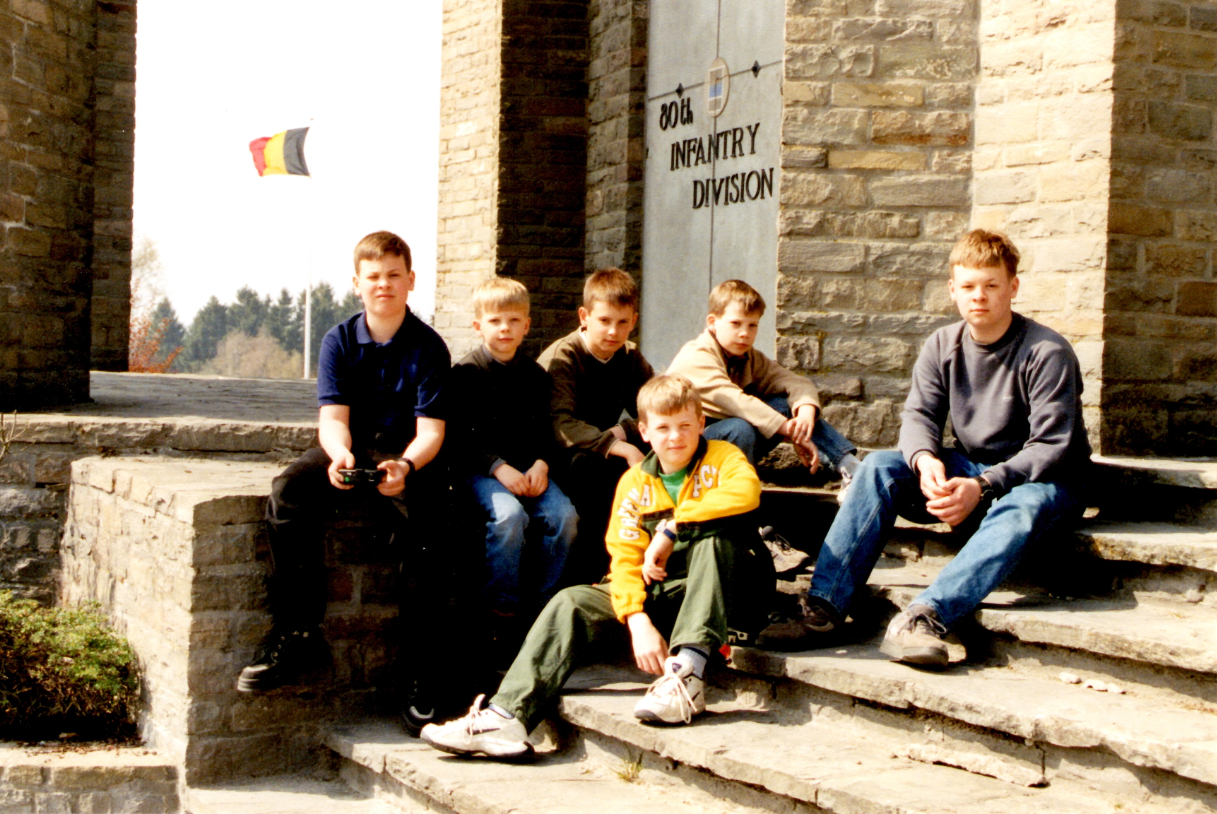
Some Military Brats bounce around from job to job, fueled by their insatiable desire to see new things, meet new people, and continue to live the fast-paced lifestyle they lived as Army Brats. But in a lot of cases, like my engineering job, life isn't so fast-paced. And bouncing from job to job is unstable and potentially ruinous to a civilian career. Not to mention, this kind of nomadic lifestyle can make it difficult to connect with people and form long-lasting relationships.
I Wouldn’t Trade It For The World
Military Brat life is fast-paced, stressful, traumatic, scary, and often confusing. Military kids are always moving away from their friends, adapting to new cultures, and missing their deployed parents. Relationships are strained and life can seem like an everlasting turbulent whirlwind.
Life after Brat life can be challenging, too. Trying to learn and understand civilian culture takes time, and connecting with civilian kids isn't the same as connecting with other Army Brats. Giving up the Army's transitory lifestyle can seem impossible to some Military Brats, and the urge to move around as as a civilian can be costly to both careers and relationships.
But life as a Military Brat is also eye opening, liberating, and downright exciting. Kids quickly learn to adapt to new environments and make new friends. Their diverse group of friends helps them see the world through a new lens- one that fosters open-minded and understanding worldviews. Brats are always learning about new cultures, traveling to beautiful places around the world, and feeling the warmth and camaraderie that permeates though all military bases. It's a wild and crazy upbringing that has enriched the lives of some of the most talented individuals on earth, and I wouldn't trade it for the world.
Sound Off
So there you have it. That's just a small fraction of my experience as an Army Brat, but now we'd like to hear from you. Tell us about where you grew up. Tell us about some of your most trying challenges as a Military Brat, or tell us about your most memorable experiences traveling with your family. How was your transition to the civilian world? If you aren't a former or current Military Brat, what are your thoughts on the turbulent, fast-paced Military Brat lifestyle? Let us know in the comments.
